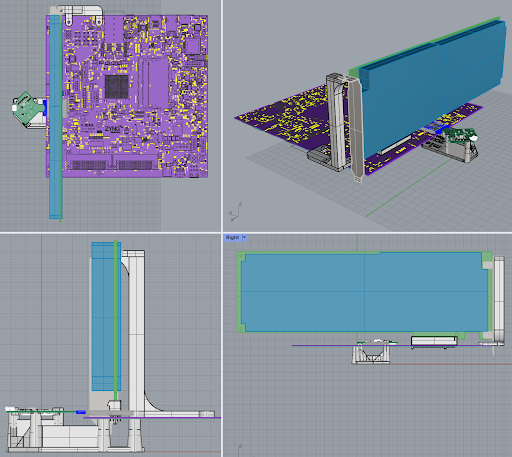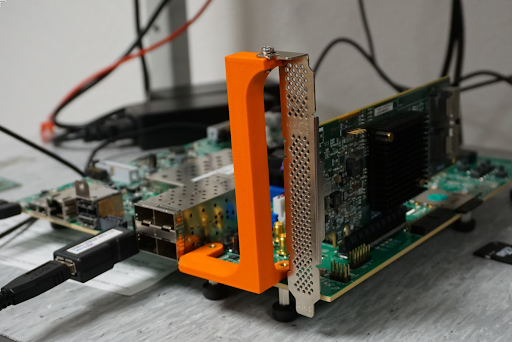Stop Wobbling Around – A Salute From The MLE Embedded Lab
Our Mission: If It Is Packets, We Make It Go Faster – today, how to properly mount those large FPGA-based PCIe Cards … theory and practice!
Everyone working with evaluation hardware knows the struggles: On its own it works, but when you assemble an entire setup you have many loosely or weakly connected parts. This easily can damage a part or much worse, you spend an entire day debugging.
To overcome this issue, MLE sometimes gets creative and designs additional carriers to securely mount extension cards or additional hardware.
As a small example, the following images show a 3D Model of how we securely mount additional Hardware to the Xilinx ZCU102:
- SD-Mux, which we use to swap SD-Card images
- PCIe Card
Here’s the theory:

The stabilizations for PCIe and SD-Mux are 3D printed by our engineers (yes they have some neat toys at home). This helps MLE to have a clean stable lab setup.
In this case we tested a SAS 12G storage controller on the Xilinx ZCU102.
And the first prototype looks like this:

If you want to enhance your Lab as well, we give you a kickstart. You can find our printable 3D Models at thingiverse:
- PCIe Carrier: https://www.thingiverse.com/thing:5164348
- SDMux Carrier: https://www.thingiverse.com/thing:5164340
What do you do to make your work easier/better in the lab?
Learn more about our PCIe IP core offerings.
🌐 www.missinglinkelectronics.com
MLE (Missing Link Electronics) is offering technologies and solutions for Domain-Specific Architectures, which focus on heterogeneous computing using FPGAs. MLE is headquartered in Silicon Valley with offices in Neu-Ulm and Berlin, Germany.
